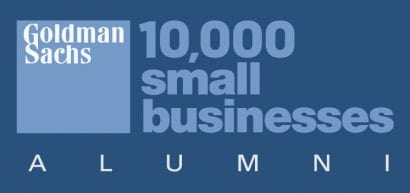
If you are working and thinking of becoming self-employed or planning on opening your own business I’ve got some things you might want to know:
I’ve been a small business owner for more than 24 years. I’ve had the obligation of payroll and employees for the last 22 years, without exception. I’ve had as few as 1 employee and as many as 11 during that period. I’ve tried hard to be a good employer – doing what I felt was right (and I was able to) in terms of benefits like health insurance, disability, vacation, personal time off, maternity leave and so on.
22 years into this exercise and I can point at a lot of good work that we’ve done for our clients and ways that we have contributed materially to their growth and development. I can also point to evidence that the American dream seems to have passed me by in the process.
Every day you can open up a magazine or a website extolling the virtues of self-employment. I won’t go into their justification but here’s what they aren’t telling you.
As a sole proprietor, you can’t collect a paycheck (at least not a traditional one with witholding, etc. built in). You can “draw” on account but unlike your employees where all their contributions are taken in small bites weekly you have to pay annually or quarterly in large chunks of cash, which never seem to be around.
If you happen to get wiped out in a periodic recession thanks to the Wall Street folks you are the only person in your organization that doesn’t qualify for unemployment benefits – and the subsequent extensions that have occurred in recent downturns. I had the pleasure of struggling through the 2001 dot-com bubble bust with a skeleton staff and borrowing against my savings to stay in business while my laid-off corporate friends collected healthy benefits and extensions for more than a year. That was fun.
Speaking of recessions – there’s no big red light that goes on over your desk when they hit. All you know is that things stop happening – the phone stops ringing and clients stop paying – its a slow, thorough and torturous process of watching everything you built bleed out. Unless you happen to be an incredibly mercenary employer you, like me, will do whatever you can to keep people busy and employed even if it means clearing out your bank accounts to subsidize the downturn.
I can’t imagine what running a big corporate HR department must be like if my experience with staff is any example. Even with a small, young, healthy staff we have had more than our share (it seems) of personal health crises, family crises, and other personal dramas. Put yourself in this position – a valued senior staff person is diagnosed with cancer one day. What do you do? Do you lay them off? Of course not – and to do so is not only ethically reprehensible but likely illegal in most states. So you work with that person to make sure they get the care they need, the time to spend recovering and getting treated, the relief from deadlines and work stress to allow them the mental space to deal with their challenges. This might go on for months, 6 months, a year, maybe more. They come to work here and there – a few hours one week, none the next. You can set them up to work from home but realistically your expectations need to be pretty low about what they can accomplish. So their billable hours go to zero while their paycheck remains the same. What do you do? In my case I just kept writing checks until things got better. I don’t know what else I could have or should have done. I still don’t.
Disability coverage would have been an answer to the above. We had it for a while but it was another monthly $$$ that we just couldn’t sustain. A small business is NOTHING but its cash flow – if you don’t have cash you are out of business. It’s that simple. And it is really simple to build yourself a hill of monthly and weekly obligations that add up to eat every dollar you make in profit. Hi-speed internet? $250, dedicated hosting servers? $1,000, health insurance? $500 per employee roughly. Rent, insurance, phones, worker’s comp, liability coverage, equipment, software licensing fees, book keeping…. The list basically is endless and it takes a tight fist to say NO to things you need to be in business.
Taxes. This was a surprise for me when I started dealing with payroll taxes – state and federal, as well as all the various made-up taxes that we have in addition. With 4 staff members right now I have to find $1200 every Tuesday to send to the Feds. Every…Tuesday…Forever…. – add a couple of employees and watch that go up and up. And then there is the monthly state payroll taxes, quarterly witholding, misc. unemployment insurance. Every month I get a packet from my accountant with a bunch of these that I have to pay – $800 here, $300 there. THEN comes your personal taxes as the business owner – if you are smart you are coughing up quarterly payments so you aren’t killed come April but again – there’s the cash issue. It’s September 15th and you should be paying $2,500 in estimated taxes to the FED but guess what, you don’t have it so wait till next april when you owe $10,000…. That’s a really fun lesson that no one tells you about. Oh, and unlike your receivables which may not come in for weeks or months and rarely udner 30 days if you miss payment to the Feds by a day you start paying penalties and interest. Immediately. They have a good gig going at the IRS.
Getting paid. We’re in a service business. Although we have some clients on retainer and some on project basis where we might get a deposit on a job, we also do a lot of hourly work. When the economy is ticking along we get paid in a timely manner – if we fight hard and make it clear that NOT getting paid on time is unacceptable. In a downturn, we’re the first to go. I’ve carried 5-figure receivables for months at a time, and in one case for nearly a year. Why didn’t I go to small claims court? A: I’m intimate with my clients and I know what they are up against – I will get paid eventually. B: If I sue my clients I will lose them, I won’t get paid AND they will just take their work to my competition. Working is a partnership – it’s taken me years to understand how to communicate often and clearly about receivables to avoid an issue – an expensive and stressful learning process.
I know the easy answer to all this is to make more money. Well – making money is hard. Everyone in the world is grappling with the change in our relationship with money and each other as a consequence of the rise of technology, the internet and the costs of natural resources. Some people have the “touch” – or get lucky. Most of the people I know and work with are neither – they have to be smart, innovative, creative and energetic to stay ahead of their competition and themselves. There are a ton of coaches and experts who promise us 10-steps to six figures, etc on the web. I’ve engaged in a few of these and ironically it really comes down to working really hard, neglecting your family, friends and health and hoping to get lucky. I’d rather be a modest success and have family and friends, thanks.
Debt – remember the cash issue above? Well, if you are a responsible business owner who pays his people and his bills then you better get on a good relationship to how to manage long and short term debt. Capital is a buffer – a capacitor for managing the vicissitudes of receivables and expenses. Without capital you are really facing a difficult path. Debt management is one way to access and manage capital but it is a slippery slope.
Health Insurance is one of the largest if not the largest expense items we carry – and it sucks. Obamacare seems to be making a dent in the options but generally speaking it’s a massive suck on a small business that tries to do the right thing. I try to cover insurance for single employees who don’t have access to any plans through spouse or family in some way. It’s another massive cash outlay every month that is a scary obligation. I recently had an employee have an emergency health issue come up and I spent a few breathless moments under the impression that I was late with the monthly premium and potentially the coverage wouldn’t be there. I wasn’t late after all – I pay it religiously – but that was a heart-stopping reality. No pay, no play. Every month.
I don’t know exactly why I’m writing this – perhaps someone out there with starry-eyed notions will benefit from a reality check. I would never want to discourage anyone from pursuing their dreams and goals but consider carefully what your tolerance for uncertainty is. Not to say that employment is certainty – you can lose a job in a instant. Being self-employed has allowed me to set my own course in life, to pursue what interests me and build (or dismantle) the relationships that I enjoy. It’s allowed me some freedom to manage my own time and given me the illusion of “freedom” if not actually the reality. I can get on my bike at 12 or 2 or 5 – no one can tell me not to and I suppose that is worth something.
Ultimately the challenge with being a small business leader comes to vision and creativity and energy. The people around you are relying on YOU to have those qualities, to keep managing a complex system to mutual advantage – to taking the risks both personal and financial that will result in opportunity and growth. Sustaining those qualities for decades takes a lot of focus and in that focus many other things fall by the wayside. If you take the step to creating your own path I understand. Just know that running a small business isn’t really about making money and being succesful – it’s about creating long-term, mutual agreements between human beings based on deep trust. Are you ready for that?

